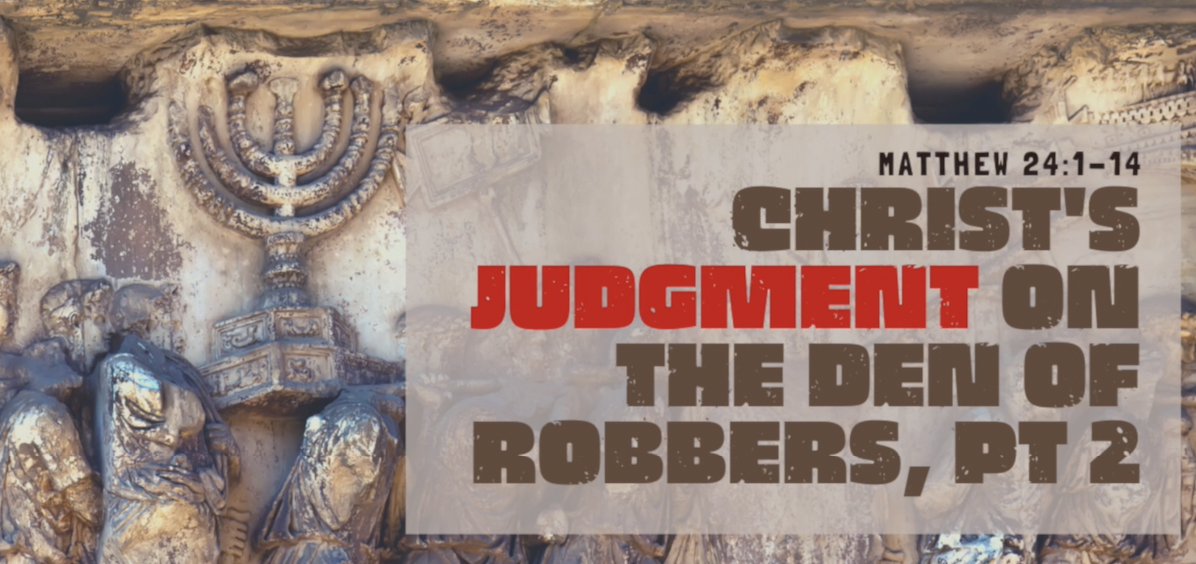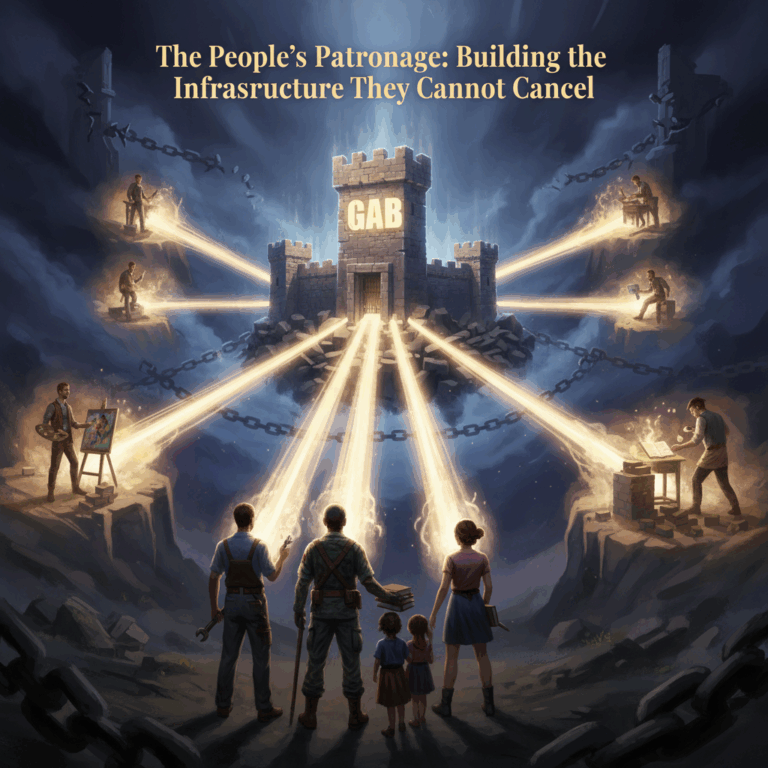Click here for Part 1
Click here for Part 3
Click here for Part 4
Click here for Part 5
Click here for the sermon that accompanies this blog post
24 Then Jesus went out and departed from the temple, and His disciples came up to show Him the buildings of the temple. 2 And Jesus said to them, “Do you not see all these things? Assuredly, I say to you, not one stone shall be left here upon another, that shall not be thrown down.”
3 Now as He sat on the Mount of Olives, the disciples came to Him privately, saying, “Tell us, when will these things be? And what will be the sign of Your coming, and of the end of the age?”
4 And Jesus answered and said to them: “Take heed that no one deceives you. 5 For many will come in My name, saying, ‘I am the Christ,’ and will deceive many. 6 And you will hear of wars and rumors of wars. See that you are not troubled; for all these things must come to pass, but the end is not yet. 7 For nation will rise against nation, and kingdom against kingdom. And there will be famines, pestilences, and earthquakes in various places. 8 All these are the beginning of sorrows.
9 “Then they will deliver you up to tribulation and kill you, and you will be hated by all nations for My name’s sake. 10 And then many will be offended, will betray one another, and will hate one another. 11 Then many false prophets will rise up and deceive many. 12 And because lawlessness will abound, the love of many will grow cold. 13 But he who endures to the end shall be saved. 14 And this gospel of the kingdom will be preached in all the world as a witness to all the nations, and then the end will come.
Matthew 24:1-14
Introduction
When I was about twelve years old, I went to church camp down in Iowa. And the only thing anyone wanted to talk about was these books that had recently come out, about this guy who lived through the end of the world and people were disappearing and there was this one-world government that sounded very scary. It was a book series called Left Behind.
Many of you have probably read it, or at least seen the movies. The book has had a profound impact upon the theology of the church in our country. So much so, that if you said to many faithful evangelical folks that you might not be totally persuaded that the Bible teaches there will be a rapture, they will react as strongly or even more strongly than if you denied the Trinity.
In fact, the kind of view of the end times that seems to dominate much of the conservative evangelical church today, is something that was brand new less than 200 years ago, a recent development in the 2000-year history of the church. Rapture theology was born out of the same milieu, the same period of religious excitement and fervor that gave rise to uniquely American cults like Mormonism and Seventh-Day Adventism. For the first 1800 years of the church, no one really believed anything like it. The church did have a few different schools of thought regarding the end, and over the centuries there were sometimes doomsday panics, but the idea that the church would be taken while the rest of the world remained is a novel development.
We have to approach God’s Word with careful exegesis, not allowing popular ideas foreign to the text of scripture to do the job of interpreting its meaning for us. Further, we have to understand everything that is said not only in the context of Matthew’s Gospel but the Bible as a whole, particularly how prophetic language was used throughout the Bible.
The Build-Up to “These Things” (v. 1-8)
Jesus has just gotten done spending two days in the Temple, the very center of the Old Covenant world and the very center of Israel, condemning that place and its leaders, and as He leaves he prophesies that this place will be destroyed while that generation still lives. Not one stone will be left upon the other. This in fact did happen just as Jesus said it would. If we understood the Old Testament as well as we ought to, we would understand just how absolutely shocking this statement is by Jesus. And how shocking an event like the temple’s destruction would be.
One of the single best arguments that the entire New Testament was completed early (by the 60s AD and not the 90s or later) is that the surviving apostles would have made a huge deal about the Temple being destroyed, and they say nothing about it. The entire New Testament is written as if it is a future event. This leads unbelieving, scoffing scholars to conclude the New Testament had to be written after AD 70 because references to that event happening in the future are all over the New Testament in basically every single book and epistle, and we know, after all, they couldn’t possibly have actually known that was going to happen.
But Jesus does in fact know that this is going to happen. He is the one who makes it happen. He is the one bringing down judgment upon this wicked place that pours out the blood of the saints. And so as they get to the Mount of Olives, the disciples press Jesus asking when these things are going to take place. “Hey Jesus, you know the stuff you said about the temple being destroyed, how is that all going to go down exactly?” So Jesus begins to tell them. He is not telling them about the end of space and time and history. He is telling them about the end of ISRAEL’S history.
It is going to be a very scary time. In the chaos and confusion, there will be many who try to deceive even the apostles. People will come saying they are Him. You will hear about wars and rumors of wars, but He tells them not to worry. This stuff has to happen, but that won’t even be it, that is just the prelude. And so to will be the famines, disease, and earthquakes that will come. All these things are just the lead-up to what is happening, and Jesus is telling them this to steel their spines so that they will not despair.
The Persecution of the Apostles and the Church From A.D. 30 to A.D. 70 (v. 9-14)
Now, do you know when most of the apostles were killed? Most of them were killed in the mid to late 60s AD. Right before the end, in 70 AD. And look what Jesus says in verse 9: Then they will deliver you (He is speaking to the apostles) up to tribulation and kill you, and you will be hated by all for my name’s sake. There will be scandal, people will betray each other. Paul wrote against that very thing happening in the churches. Many false prophets did indeed rise up. And if you read the Jewish historian Josephus, lawlessness in Israel and false prophets did abound in this period.
Then the objection might come, the gospel has not been preached in all the world by 70 AD what about Africa, the Americas, unreached tribes in Papua New Guinea, etc.? The meaning of that word we translate as “world” has a particular meaning in Greek. oikoumene is the word for the civilized world, the Greco-Roman world, the world that surrounds the Mediterranean Sea, the world from the Near East, to North Africa, to the Danube and Rhine, and to Spain. It does not mean the entire planet. In Luke 2:1, Caesar Augustus declares that all the oikoumene is to be taxed. Did this mean he sent his legions to Papua New Guinea and to whoever lived in what is now Southern Minnesota? Nom of course not. He sent them to the “known world.” That is how the New Testament consistently uses this word.
This does not mean the gospel of the kingdom is not to be preached in every square inch of the globe, because it will be and this is the mission Jesus has given to us, but rather the point here is that this is how those originally hearing oikoumene would understand it. And again this did happen. The Apostle Paul longed to go all the way to Spain after he went to Rome. Thomas is said to have gone all the way to India. Others went to the North and South corners of the oikoumene. This too did happen before the end in 70 AD.
Conclusion
What Jesus is describing in this passage is something that has already happened. If this is not something you have ever considered before, that Matthew 24 is about something that has already taken place and not some future event, that can be pretty jarring. You begin to ask, well then what passages are about the future for us? There is quite a bit that is for us. The way the Bible describes the end is the resurrection of the dead. The last trumpet is finally sounded and the earth gives up her dead. The Bible also shows us heaven coming down to earth at this time. Someday, Lord willing, we will have the opportunity to go very carefully through the Book of Revelation, and not to spoil it for you, but the book ends with the gospel of Jesus Christ conquering the world with the world made into a giant garden of Eden. It ends with the joyous Wedding Supper of the Lamb. It ends with good and beautiful things.
What Jesus is warning against in this time of tribulation for the apostles and the early church is a time where the church is being attacked. This passage where Jesus is describing the tribulation of the church is Him describing the context of the rest of the New Testament. If you’ve read through the New Testament, all of the letters from the apostles to the churches what kind of things do they consistently say? “Hold fast to the faith!” “Do not abandon Jesus!” “Do not return to Judaism just because the temple is still standing!” “Do not be dismayed because mockers say ‘where is the promise of His appearing’” “Something really big and bad is about to happen so stay strong.”
So many people think the apostles were these big chumps who thought Jesus was going to physically return while they were still alive and were disappointed when He didn’t. But that also isn’t what the Greek word for “appearing” means. Parousia, the Greek word the New Testament uses to describe Christ’s appearance, is yet another word with a very specific meaning. It is a word used to describe a king or general appearing to inspect something, such as his people or his troops. A parousia is when the emperor is showing up. You better be ready when he comes. God had a habit of appearing in judgment on His people in the Old Testament. His appearing in the form of the Babylonian army was Him appearing to bring judgment upon a rebellious disobedient people. The appearing that Jesus describes happens similarly. He shows up, in wrath, to bring judgment upon the temple and people of Israel.
But the fact that the situation Jesus describes, where the church is undoing significant persecution in the period between AD 30 and AD 70 does not mean we should view what Jesus says here as something that does not apply to us today. Far from it. It is incredibly applicable to us today. Yet another pastor was arrested in the country just north of ours for the crime of not forsaking the gathering of the saints. He would not shut down his church and is now in jail for it. Another English-speaking country that also once had a strong Christian heritage, Australia, has people locked away in their homes indefinitely, forcing them to take photos of themselves to prove they are at home or they will be fined.
A time of tribulation, not unlike that of the early church is here. There is tremendous pressure on Christians to simply give up. Just give in. Church is not that important. You can watch some pixels on the screen that is the same thing. A country that forces you to say a man is a woman or you will lose your job, or take an experimental treatment, is a country that can compel you to renounce faith in Jesus Christ. It is not hyperbole or fear-mongering. It is reality.
But what does Jesus tell the apostles when He describes the terrifying things that are going to happen to them? Those he who endures to the end shall be saved. Jesus was telling them this stuff so that they would endure what was coming. Those of us with eyes to see what is coming down the road have been made aware of it for what purpose? So that we despair? So that we go hide away in our basements? No, so that we do the things right now that will ensure that we endure what is to come. Jesus Christ is not the God of defeat but the God of Victory. The gospel is announcement of victory, never forget that. So endure, that you will be victorious. In the name of the Father, the Son, and the Holy Spirit! Amen!





